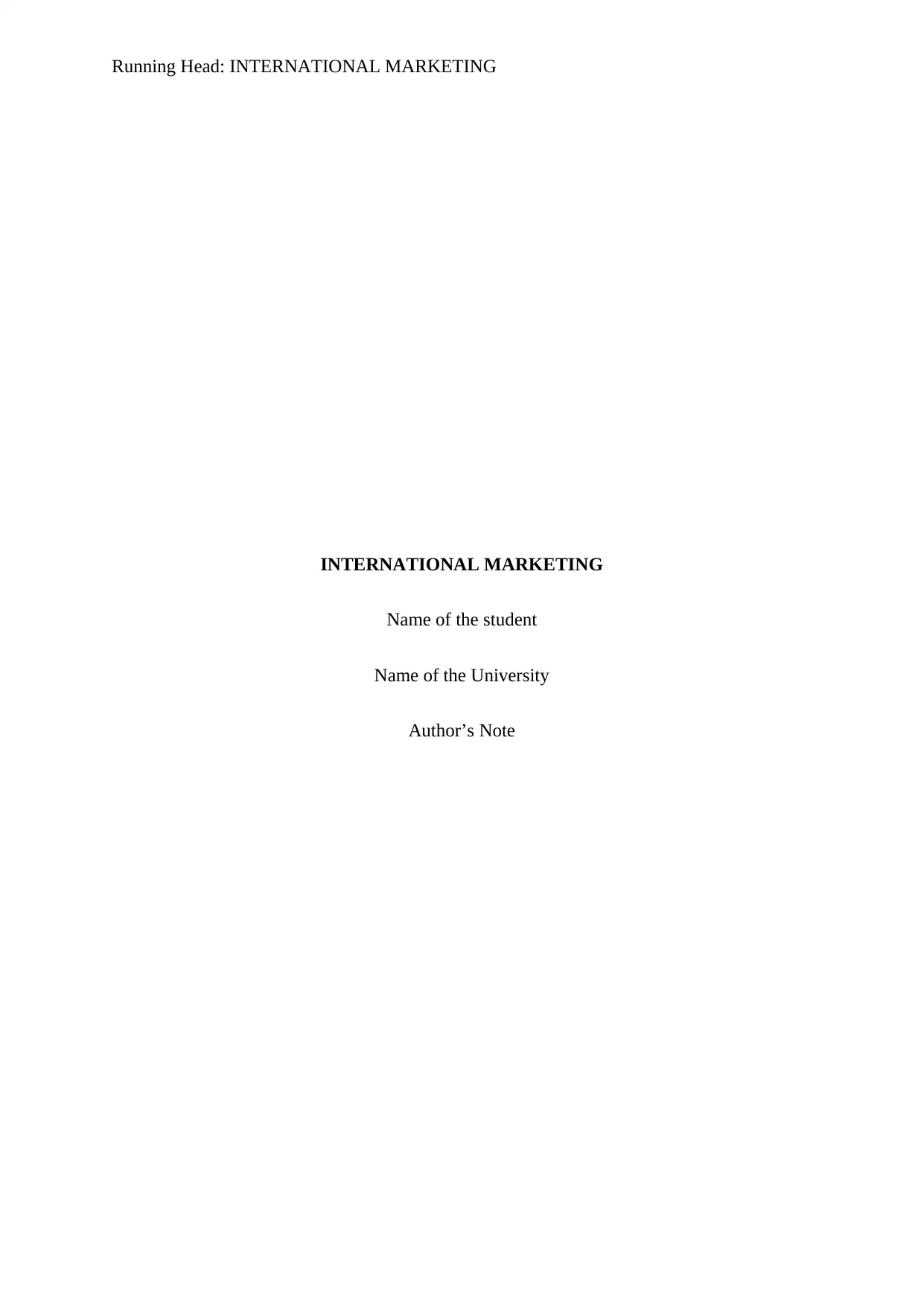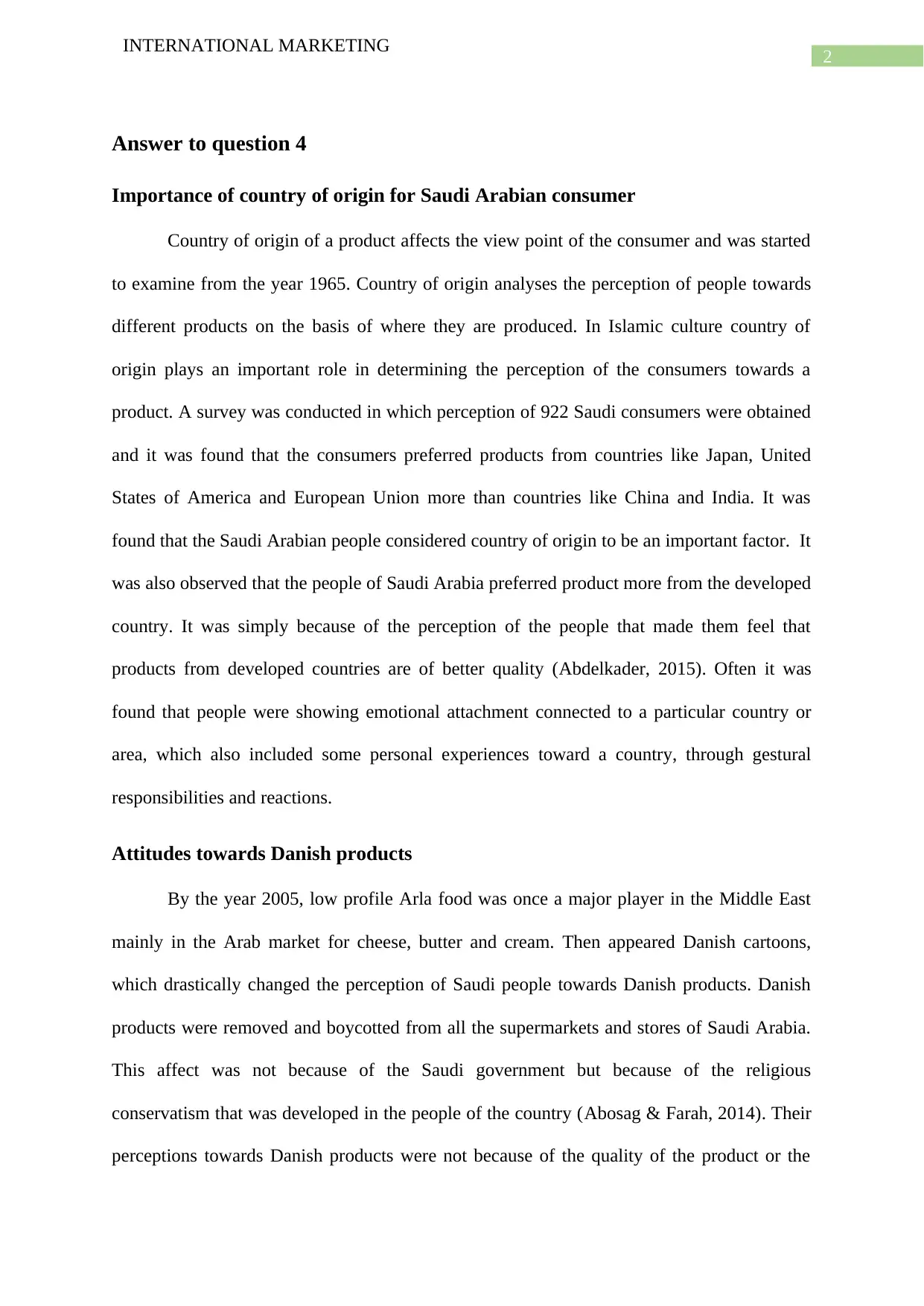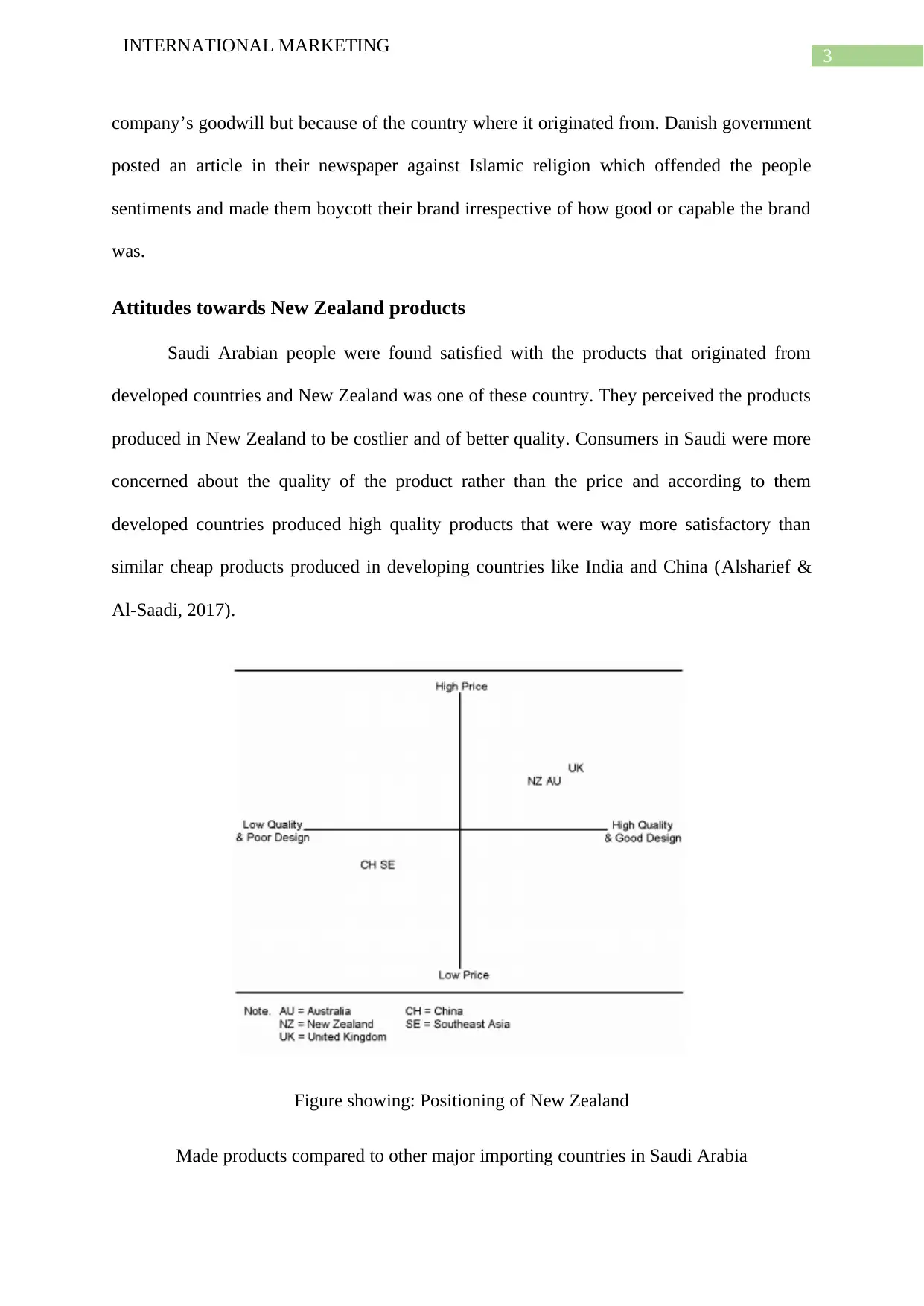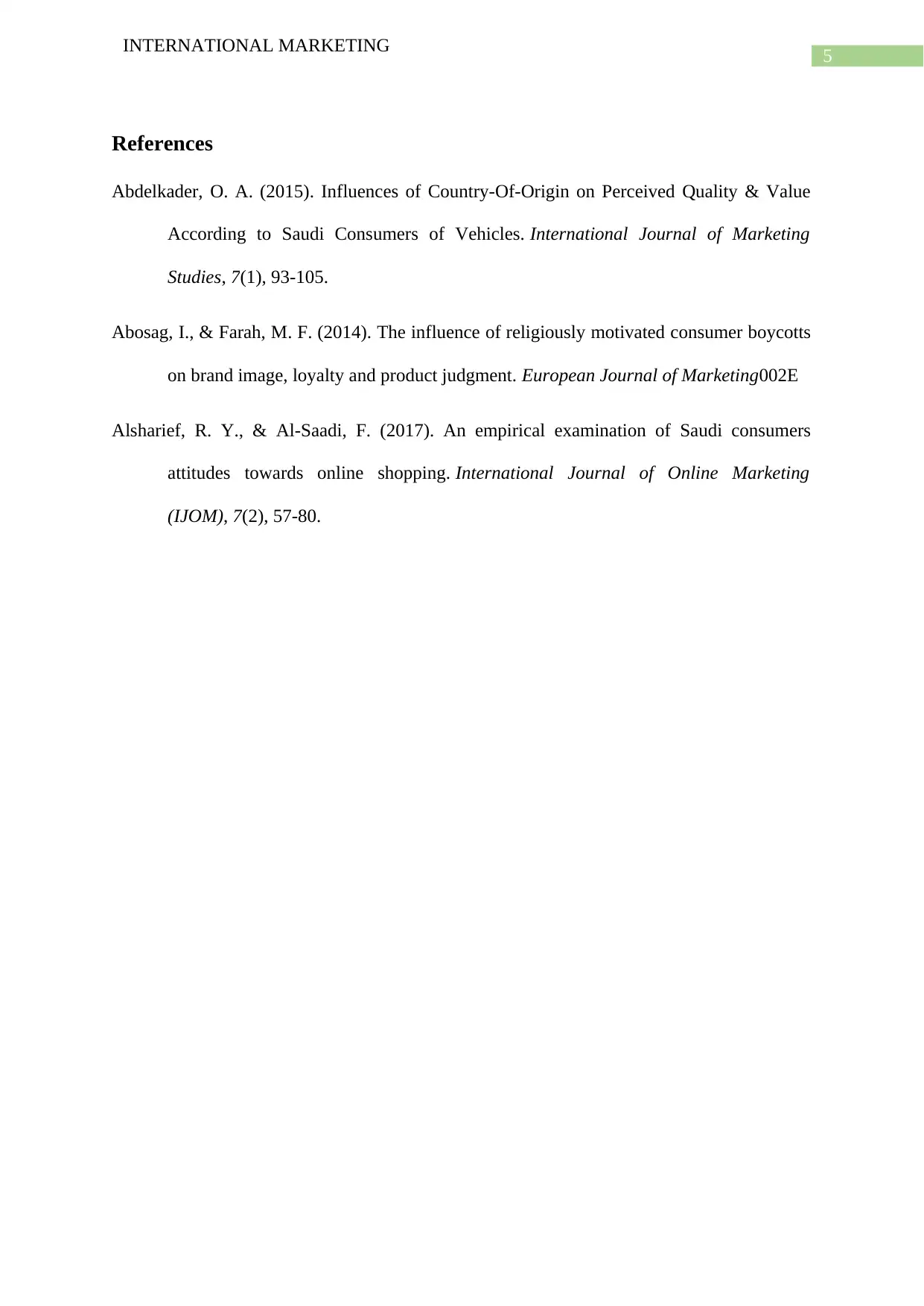International Marketing Report: Saudi Arabian Consumer Attitudes
VerifiedAdded on 2022/08/22
|6
|720
|16
Report
AI Summary
This report delves into the realm of international marketing, specifically examining the Saudi Arabian consumer market. It investigates the significant role that country of origin plays in shaping consumer perceptions and attitudes towards various products. The report analyzes a survey that highlights the preferences of Saudi consumers, revealing a strong inclination towards products from developed countries like Japan, the United States, and the European Union. It further explores the impact of cultural and religious factors, using the example of Danish products and the boycott following the publication of offensive cartoons. The report also assesses consumer attitudes toward New Zealand products, highlighting their perceived quality and value. The analysis includes a comparison of New Zealand products with those from other major importing countries, offering insights into consumer preferences and market dynamics. The report concludes with a discussion on the overall positive perception of New Zealand products among Saudi Arabian consumers.
1 out of 6













![[object Object]](/_next/static/media/star-bottom.7253800d.svg)